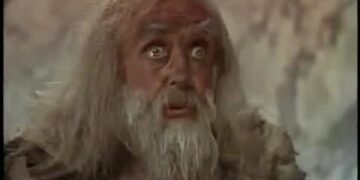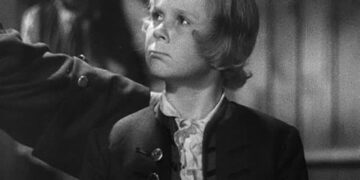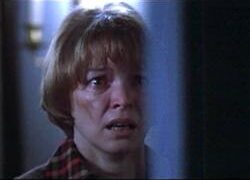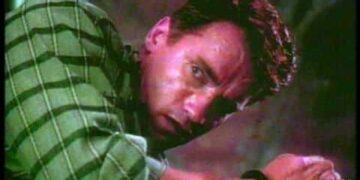As an avid reader and movie enthusiast, I’m always on the lookout for impactful stories that are both profound and thought-provoking. ‘The Mauritanian’ is one such narrative that has left an indelible mark on my conscience.
It’s a gripping story based on the real-life experiences of Mohamedou Ould Slahi, a man wrongfully detained at Guantanamo Bay for years without trial.
The Mauritanian not only shines a light on the dark corners of human rights violations but also highlights the power of resilience and hope.
The narrative traverses the journey of Slahi, who was imprisoned for 14 years, and his relentless fight for freedom. This story has been beautifully adapted into a book and a movie, and this blog post is dedicated to unraveling the layers of this poignant narrative.
Mohamedou Ould Slahi: Bio and Works
Mohamedou Ould Slahi is a Mauritanian man who was wrongfully detained at the Guantanamo Bay detention camp for more than a decade.
His memoir, ‘Guantanamo Diary,’ a harrowing account of his experiences, became a New York Times bestseller and was later adapted into the movie ‘The Mauritanian.’
Slahi was born in Mauritania, a country on the northwest coast of Africa. He received a scholarship to study in Germany and later worked in several countries as an engineer.
Despite the anguish and despair he faced during his imprisonment, Slahi’s resilience and hope never wavered, and he continued to maintain his innocence throughout his years in detention.
‘The Mauritanian’: Book Summary
‘The Mauritanian’ is a heart-wrenching book that dives deep into Slahi’s experiences at Guantanamo Bay.
The book unflinchingly reveals the brutal interrogation techniques and inhumane treatment he endured while being held without charge. Slahi’s ability to maintain his humanity in the face of such adversity is a testament to his incredible resilience.
The book is a compelling read, offering a firsthand account of life inside one of the world’s most notorious prisons.
‘The Mauritanian’: Movie Summary
The movie adaptation of ‘The Mauritanian’ brings Slahi’s story to the big screen with an intense and emotional portrayal.
Directed by Kevin Macdonald, the movie is a gripping legal drama that showcases the struggle for justice against a system hell-bent on concealing the truth.
With stellar performances from Tahar Rahim as Slahi, Jodie Foster as defense attorney Nancy Hollander, and Benedict Cumberbatch as military prosecutor Stuart Couch, the movie serves as a stark reminder of the grave injustices committed in the name of national security.
The film is a testament to Slahi’s indomitable spirit and the relentless pursuit of justice by his legal team.
Parent Guide to ‘The Mauritanian’
‘The Mauritanian’ is an intense movie that deals with heavy themes like torture, wrongful imprisonment, and gross human rights violations.
It’s rated R for its graphic depiction of torture, violence, and language, making it unsuitable for young audiences.
For parents, this film opens up an opportunity for a serious discussion about the importance of human rights, the rule of law, and the dangers of unchecked governmental power.
It’s a powerful tool to educate older teenagers about the world they live in and the importance of standing up for justice.
When and Where ‘The Mauritanian’ Takes Place: Film Locations
‘The Mauritanian’ is set in the early 2000s, in the aftermath of the 9/11 attacks. The majority of the movie unfolds inside the Guantanamo Bay detention camp, located in Cuba.
The filmmakers went to great lengths to recreate the notorious detention camp, with most of the filming taking place in South Africa.
The film also features locations in Afghanistan and Mauritania, providing a stark contrast to the grim reality inside the prison.
The beautiful landscapes of these locations are juxtaposed against the claustrophobic and inhumane conditions of Guantanamo, amplifying the sense of loss and confinement experienced by Slahi.
Who’s Who in ‘The Mauritanian’
‘The Mauritanian’ features an ensemble cast that brings Slahi’s story to life. Tahar Rahim delivers a powerful performance as Mohamedou Ould Slahi, capturing his resilience, despair, and unyielding hope.
Jodie Foster, a powerhouse of talent, plays the role of Nancy Hollander, Slahi’s relentless defense attorney who fights against all odds to secure his release.
Benedict Cumberbatch portrays Lt. Colonel Stuart Couch, a military prosecutor who initially seeks to convict Slahi but later becomes instrumental in exposing the truth.
Shailene Woodley plays Teri Duncan, a junior associate working with Hollander, who becomes deeply involved in Slahi’s case. Their collective performances bring a depth and authenticity to the film, making it a must-watch.
Memorable Quotes from ‘The Mauritanian’
‘The Mauritanian’ is filled with powerful dialogues that leave a lasting impact. Slahi’s words, despite his dire circumstances, often reflect his unwavering faith in humanity.
One of his most memorable quotes is, “In Arabic, the word for free and the word for forgiveness is the same one. I want to be free.”
Another impactful quote from the movie is uttered by Nancy Hollander, “This is how, even here, I can find a way to live.”
These lines not only encapsulate the essence of the narrative but also serve as a reminder of the power of resilience and hope.
‘The Mauritanian’ Soundtrack by Tom Hodge
The soundtrack for ‘The Mauritanian,’ composed by Tom Hodge, is a blend of haunting melodies and evocative rhythms that perfectly complement the intense narrative.
Hodge’s music underscores the emotional journey of the characters, amplifying the poignant moments of despair, hope, and triumph.
The soundtrack, just like the film, is a powerful testament to Slahi’s unyielding spirit.
It captures the essence of his struggle and ultimate triumph, making it an integral part of the cinematic experience.
Curiosities About ‘The Mauritanian’
While ‘The Mauritanian’ is a gripping narrative in itself, there are some interesting facts associated with it.
For instance, the movie was shot entirely on film, a rarity in today’s digital age. Director Kevin Macdonald insisted on this to give the movie a raw and authentic feel.
Another interesting fact is that Jodie Foster, who plays Nancy Hollander, had never met the real-life Hollander until after the movie was completed.
Foster stated that she didn’t want her performance to be an imitation and chose to interpret the character in her own way.
Tips for Cosplay: Dress Like Characters from ‘The Mauritanian’
For cosplay enthusiasts, ‘The Mauritanian’ offers a range of characters to emulate. Dressing like Mohamedou Ould Slahi would require a simple orange jumpsuit, symbolic of the Guantanamo Bay detainees.
For Nancy Hollander, a tailored suit, a pair of glasses, and a short blonde wig would do the trick.
Remember, cosplay is not just about the clothes but also about embodying the character’s spirit.
So, whether you choose to portray Slahi’s resilience or Hollander’s tenacity, make sure to bring their essence to life.
Ending of ‘The Mauritanian’: Explained
The ending of ‘The Mauritanian’ is a poignant conclusion to Slahi’s harrowing journey. Despite the overwhelming evidence of his innocence, Slahi remains in detention for years due to bureaucratic delays.
It’s only after a protracted legal battle that he’s finally released in 2016.
The movie ends with Slahi free and back in Mauritania. Despite his ordeal, he holds no bitterness and chooses to forgive his captors, a testament to his incredible spirit.
The ending is a powerful commentary on the resilience of the human spirit and the pursuit of justice.
‘The Mauritanian’: Potential Remake, Sequel, and Spin-off
Given the powerful narrative of ‘The Mauritanian,’ it’s not surprising that there’s speculation about potential remakes, sequels, or spin-offs. However, as of now, there are no official announcements regarding any such projects.
If there were to be a sequel or spin-off, it would be interesting to see the aftermath of Slahi’s release and how he readjusts to life in Mauritania. A remake could also delve deeper into the legal battle fought by Hollander and Couch.
Other Media by Kevin Macdonald
Kevin Macdonald, the director of ‘The Mauritanian,’ is known for his diverse body of work, which includes both documentaries and feature films.
Some of his notable works include ‘The Last King of Scotland,’ ‘State of Play,’ and the documentary ‘Whitney.’ His ability to tell complex stories with authenticity and depth is evident in all his works.
Similar Media to ‘The Mauritanian’
If you appreciated ‘The Mauritanian,’ there are several other movies and books dealing with similar themes that you might enjoy. Films like ‘Zero Dark Thirty,’ ‘The Report,’ and ‘A Few Good Men’ delve into the complexities of justice, law, and military practices.
Books such as ‘A Long Way Gone’ by Ishmael Beah and ‘Escape from Camp 14’ by Blaine Harden also offer harrowing accounts of survival and resilience.
Other Works by Mohamedou Ould Slahi
Apart from ‘Guantanamo Diary,’ Mohamedou Ould Slahi has also written ‘The Actual True Story of Ahmed & Zarga,’ a novel that offers insights into Mauritanian culture.
His works are a testament to his indomitable spirit and his ability to transform his painful experiences into powerful narratives.
Similar Media to Guantanamo Diary
If you found ‘Guantanamo Diary’ impactful, you might want to explore similar memoirs that offer firsthand accounts of survival and resilience. Books like ‘Night’ by Elie Wiesel.
A Long Way Gone’ by Ishmael Beah, and ‘The Diary of a Young Girl’ by Anne Frank are powerful narratives that chronicle the human spirit’s capacity to endure and rise above adversity.
Book Club Questions for ‘The Mauritanian’
Discussing ‘The Mauritanian’ in a book club can spur meaningful conversations about human rights, justice, and resilience.
Some questions to consider might include: How does Slahi manage to maintain his humanity in such inhumane conditions? What role does faith play in his survival? How does the book challenge our perceptions of justice and law?
Video Games Inspired by ‘The Mauritanian’
While there are no video games directly inspired by ‘The Mauritanian,’ several games explore themes of justice, survival, and resilience.
Games like ‘Papers, Please’ and ‘This War of Mine’ offer immersive experiences that resonate with the themes of ‘The Mauritanian.’
Travel Guide to Visit ‘The Mauritanian’ Locations
Although ‘The Mauritanian’ was filmed mainly in South Africa, the narrative spans several countries, including Mauritania and Cuba.
Traveling to these locations can offer a deeper understanding of the cultural and geographical context of the story. Remember, responsible and respectful travel is crucial, especially when visiting locations associated with such sensitive narratives.
Conclusion
‘The Mauritanian’ is a powerful narrative that underscores the importance of justice, human rights, and resilience.
Whether you choose to read the book or watch the movie, you’re sure to be moved by Mohamedou Ould Slahi’s incredible spirit and his relentless pursuit of justice. This story serves as a stark reminder of the unwavering strength of the human spirit and the importance of standing up for what is right.













